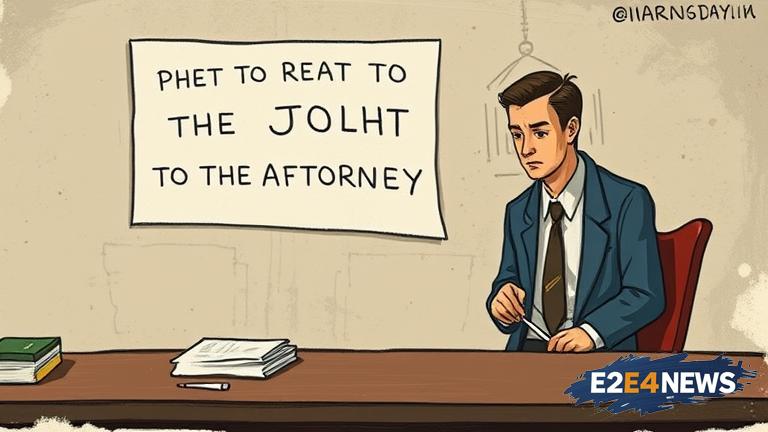Non-judicial punishment, also known as Article 15 or Captain’s Mast, is a disciplinary action that can be taken against military personnel for minor offenses. This type of punishment is typically administered by a commanding officer and can result in penalties such as extra duties, restriction, or reduction in rank. However, one of the most significant concerns for military personnel facing non-judicial punishment is whether they have the right to an attorney. According to the Uniform Code of Military Justice (UCMJ), military personnel have the right to consult with an attorney before accepting non-judicial punishment. This right is guaranteed under Article 15, which states that a service member has the right to consult with a lawyer before deciding whether to accept or refuse non-judicial punishment. If a service member decides to accept non-judicial punishment, they may still have the right to appeal the decision. The appeal process typically involves submitting a written request to the commanding officer, who will then review the case and make a decision. In some cases, the service member may also have the right to a hearing, where they can present evidence and argue their case. It’s worth noting that non-judicial punishment is not the same as a court-martial, which is a more formal and serious type of disciplinary action. While non-judicial punishment can still have significant consequences, it is generally considered a less severe form of discipline. Military personnel who are facing non-judicial punishment should understand their rights and options, including the right to consult with an attorney. An attorney can help the service member understand the potential consequences of accepting non-judicial punishment and can also represent them during the appeal process. In addition to understanding their rights, military personnel should also be aware of the potential consequences of non-judicial punishment, including the impact on their career and future opportunities. Non-judicial punishment can result in a permanent mark on a service member’s record, which can affect their ability to advance in their career or receive certain benefits. Furthermore, non-judicial punishment can also have a significant impact on a service member’s personal life, including their relationships and overall well-being. It’s essential for military personnel to take non-judicial punishment seriously and to seek the advice of an attorney if they are facing disciplinary action. By understanding their rights and options, military personnel can make informed decisions and protect their interests. In conclusion, non-judicial punishment is a serious matter that requires careful consideration and attention to detail. Military personnel who are facing disciplinary action should understand their rights, including the right to an attorney, and should seek advice from a qualified lawyer. With the right guidance and support, military personnel can navigate the non-judicial punishment process and achieve the best possible outcome.
